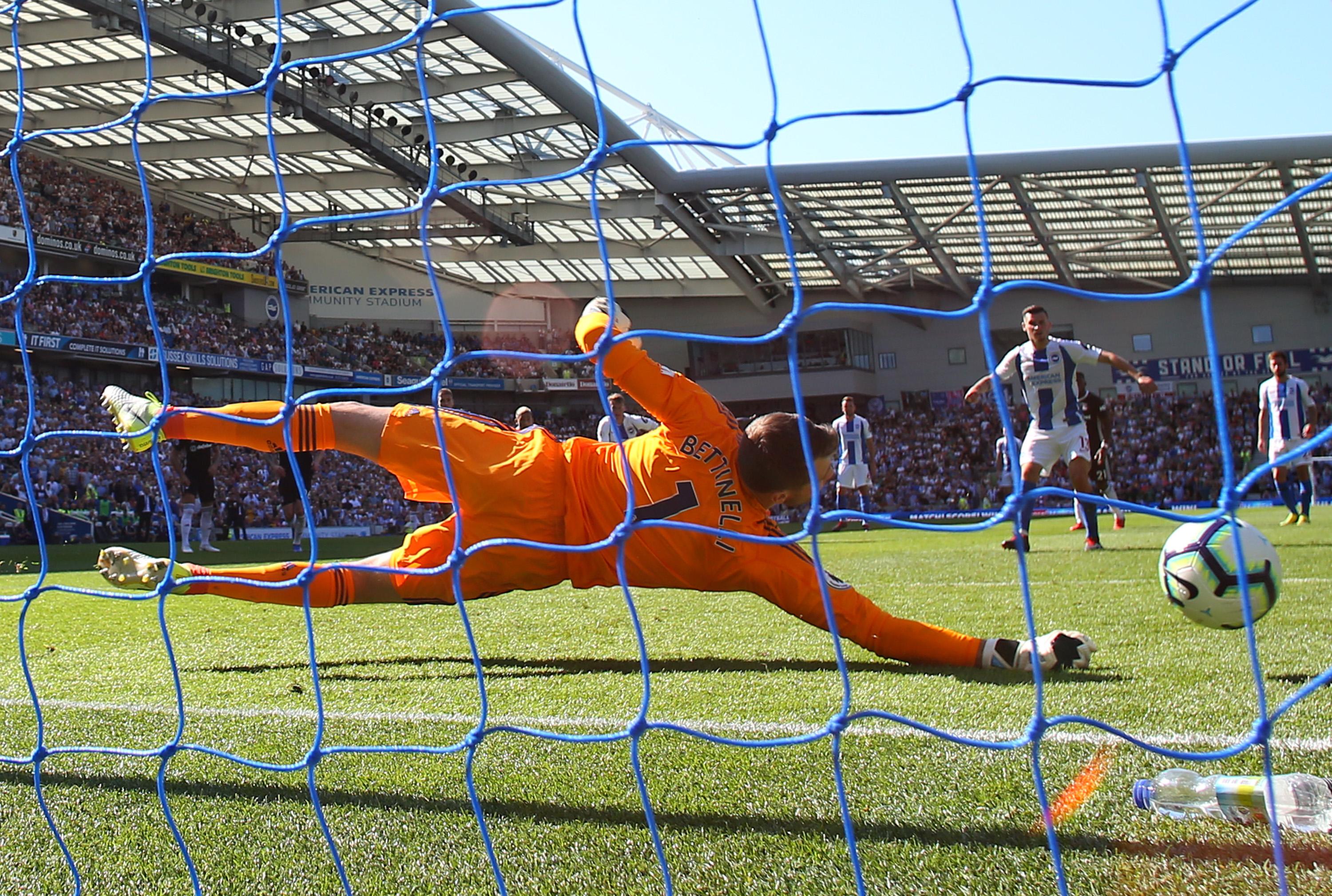Following Fulham's Premier League victory over Burnley, head coach Slavisa Jokanovic selected a completely different eleven to face Exeter in the Carabao Cup, blending last season's stars like Abou Kamara, Neeskens Kebano and Stefan Johansen with newcomers including Alfie Mawson.
Fulham won by two clear goals, both from Kamara.
Previously this competition has been regarded as a troublesome irrelevance. But this year, with so many players of first team quality, it could help Jokanovic sustain morale.
For Fulham's next match, a visit to Brighton, the injured Tom Cairney was replaced as captain by Kevin McDonald. The home side dominated the first half and won a penalty in the 24th minute when Glenn Murray was tripped in the area.
Bettinelli made a brilliant save and, instead of being a goal down, Fulham went ahead just before the interval: with a fine Andre Schurrle goal created by Seri.
Jokanovic was pleased by his team's professionalism in the first half and delighted when Aleksandar Mitrovic outsmarted Lewis Dunk in the 62nd minute to double the lead. After that things started to unravel.
One careless pass allowed Anthony Knockaert to provide Murray with a goal. Then, with the Fulham defence struggling to clear a free kick, Mitrovic raised his left arm towards the dropping ball and gave the home side a second penalty.
Bettinelli could not repeat his magic so Murray scored and the match ended in a draw.
The international break followed, involving many of the squad. Marcus Bettinelli was included in the England party: well deserved recognition of his potential.
A total of four points from four Premier League matches is hardly alarming. Fulham's goalscorers have made a fine start, and Jokanovic's greater concern will be to tighten the defence.
While researching my recent blog on places connected with FFC history I looked on Bing for information about Captain James's Field, where the team played some home matches while Craven Cottage was under construction.
The only link was to a Wikipedia page about Fulham FC. It was in Hungarian and it was slightly out of date as Rene Meulenstein was stated to be manager. Magyars beware, this is not the place to learn about the club's various homes. According to Hungarian Wikipedia the first ever match in 1879 took place at Hurlingham, rather a long trek from St Andrew's Church and the homes of the early players. Sadly for that contributor, the excellent public facility did not exist until 1952 unless they are thinking of the polo ground, where footballing non-members would have been most unwelcome.
After the 'Mud Pond' in Greyhound Road (which may well have existed) Wikipedia lists Fulham Recreation Ground as the third venue – again a nice try but the 'Rec' did not open until the end of 1892.
Previously the site was a market garden, where trespassers might have scrumped some apples but could hardly have invited other teams for a football match. It is more likely that the games were played on the site reserved for the school now known as Sir John Lillie. So if you see any Hungarians lost in Hurlingham please direct them to the right place.
The views expressed in this blog are those of the author and unless specifically stated are not necessarily those of Hammersmith & Fulham Council.
Want to read more news stories like this? Subscribe to our weekly e-news bulletin.

